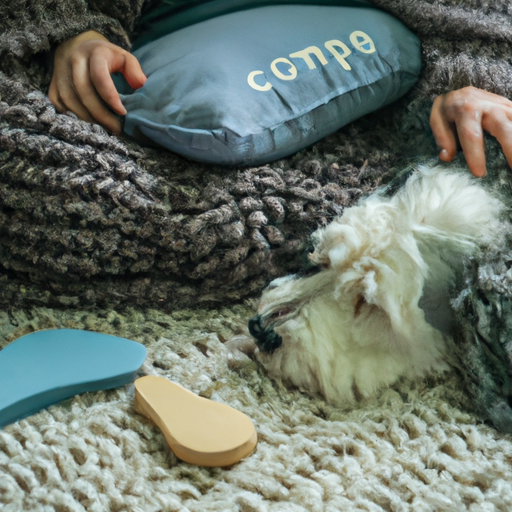As a caregiver, you understand the importance of providing the best possible care for your beloved pets. Dogs, just like humans, can suffer from anxiety. This can manifest in a variety of ways such as excessive barking, chewing, or even aggression. In this guide, I will explore the various methods you can use to help your furry friends navigate their anxiety.
1. Understanding Canine Anxiety
Before we delve into solutions, it’s crucial to understand what canine anxiety is. Anxiety in dogs can be triggered by several factors including:
- Separation from owners
- Changes in environment
- Fear of loud noises
- Past traumatic experiences
Understanding the root cause of your dog’s anxiety is the first step in addressing it. Once you’ve identified the possible triggers, you can start exploring various solutions.
2. Training and Behavior Modification Techniques
One of the most effective ways to help your dog cope with anxiety is through training and behavior modification techniques. Here are some methods you can try:
- Desensitization: Gradually expose your dog to the source of their anxiety in small, manageable doses.
- Counter-conditioning: Change your dog’s response to the anxiety-inducing stimulus by associating it with something positive.
Remember, patience is key when implementing these techniques. It might take some time before you start seeing results.
3. Use of Anxiety Wraps
Anxiety wraps are a non-pharmaceutical way to alleviate a dog’s anxiety. They work by applying gentle, constant pressure on the dog’s torso, creating a calming effect similar to swaddling a baby.
| Brand | Price | Features |
|---|---|---|
| Thundershirt | $45 | Adjustable, comes in different sizes |
| AKC – American Kennel Club Anti Anxiety and Stress Relief Calming Coat | $30 | Machine washable, easy to put on |
4. Natural Supplements and Therapies
In some cases, natural supplements or therapies can be beneficial. Some options include:
- CBD oil: Known for its calming properties, CBD oil can help reduce anxiety in dogs. Make sure to consult with your vet before starting any new supplement regimen.
- Aromatherapy: Certain essential oils, like lavender, can have a calming effect on dogs.
5. Consult with a Professional
If you’ve tried the methods above and your dog’s anxiety persists, it might be time to consult a professional. A certified animal behaviorist or a vet can provide further assistance and guidance.
FAQs
Q: Can anxiety in dogs lead to other health problems?
A: Yes, prolonged stress and anxiety can lead to physical health issues such as digestive problems and skin conditions.
Q: How quickly will my dog respond to these methods?
A: It varies from dog to dog. Some may respond quickly while others may require a longer period of time.
Q: Should I stop using these methods once my dog’s anxiety improves?
A: Not necessarily. It’s best to consult with a professional for guidance.
Remember, every dog is unique and what works for one dog might not work for another. It’s all about finding the best solution for your furry friend.



